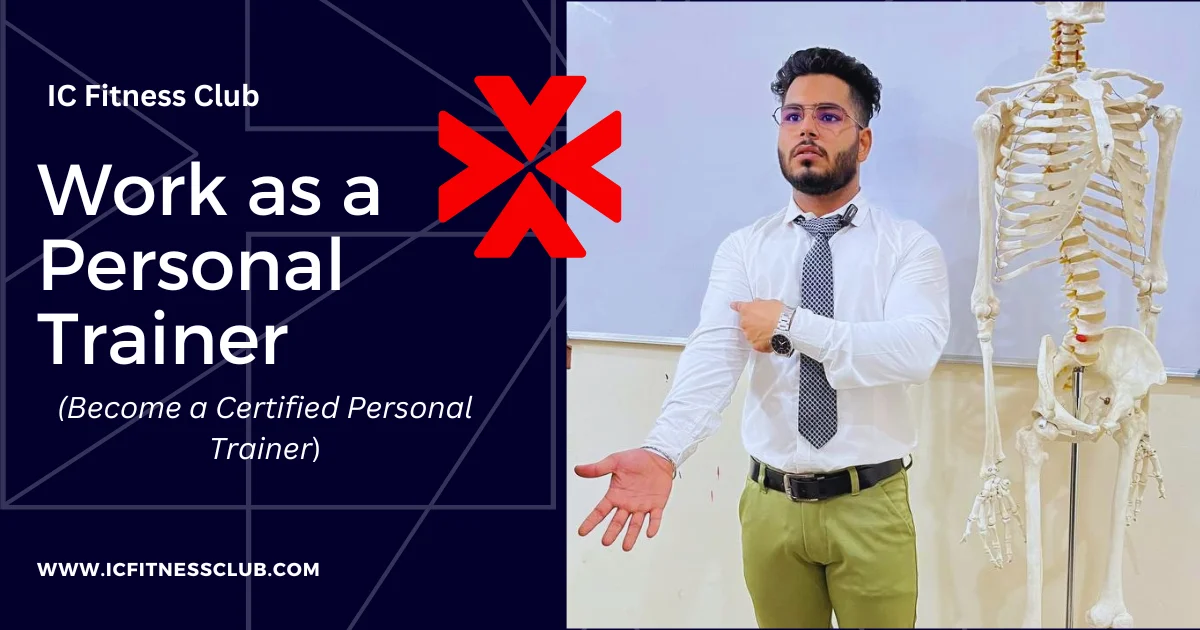Personal Trainer Course in Kolkata – IC Fitness Club
A personal trainer course is a program designed to provide training and certification in the field of personal training. It typically covers topics such as anatomy, physiology, kinesiology, exercise science, nutrition, and program design. The course aims to prepare individuals to design and implement safe and effective exercise programs for clients, based on their goals, abilities, and health status.
After completing a personal trainer course, individuals can work as self-employed personal trainers, or seek employment with fitness centers, gyms, or health clubs.
The main duties of a personal trainer include:
- Assessing clients’ fitness levels and health status.
- Designing and implementing exercise programs tailored to individual client goals.
- Motivating and encouraging clients to stick to their exercise routines.
- Monitoring clients’ progress and making adjustments to their programs as needed.
- Providing education on proper form, technique, and nutrition.
- Maintaining client records and tracking their progress.
- Staying current with developments in the fitness industry.
- Building and maintaining client relationships.
- Adhering to safety and hygiene standards.
- Continuously updating knowledge and skills through ongoing education and training.
Career for a Personal Trainer
A career as a personal trainer involves helping clients achieve their fitness goals through exercise and lifestyle guidance. Some key points about this career include:
- Job outlook: The demand for personal trainers is expected to grow, driven by increasing awareness of the importance of physical activity and a desire for healthy living.
- Work setting: Personal trainers can work in a variety of settings, including fitness centers, gyms, health clubs, community centers, and clients’ homes.
- Schedule: Personal trainers often work flexible hours, including evenings and weekends, to accommodate clients’ schedules.
- Education and certification: Most employers require personal trainers to hold a certification from a recognized organization, such as NASM, ACE, or NSCA. Personal trainers may also hold a degree in exercise science, kinesiology, or a related field.
- Skills: Personal trainers must have excellent communication, motivational, and interpersonal skills. They must also be knowledgeable about exercise science, anatomy, and nutrition, and be able to design safe and effective exercise programs for clients.
- Income: Personal trainers’ earning potential varies based on their experience, education, location, and client base. Some personal trainers work on a freelance or self-employed basis, while others are salaried employees.
- Advancement: Experienced personal trainers may advance to management positions within fitness facilities, or open their own personal training businesses.





